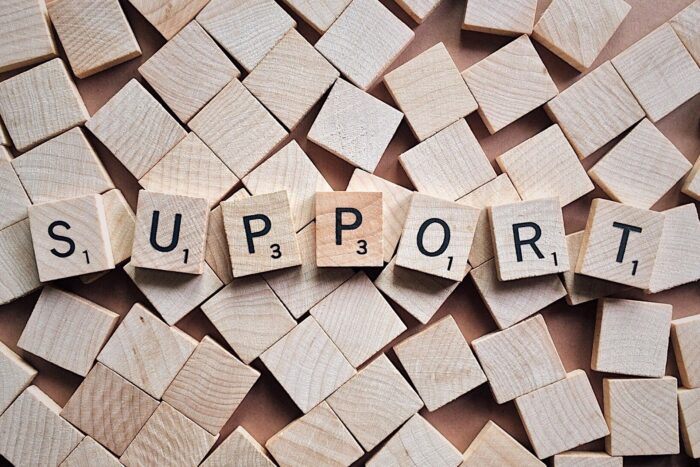
Addiction is a very serious disease that affects millions of people each year.
There are many different types of addiction, and they can occur in a variety of circumstances. Some people may have an addiction to drugs or alcohol while others struggle with gambling addictions or other forms of substance abuse.
The good news is that there are now more resources available than ever before when it comes to finding help for someone who is struggling with an addiction problem.
However, even if you’re not sure how best to support someone close to you who is looking for treatment at a rehab center, here are some tips on how to help them through this difficult time:
1. Take their concerns seriously
When someone is looking to get admitted to a rehab center, there are a few things you can do to help them and make them feel supported.
First, show that you care and want to help by taking their concerns seriously. You may not know everything about addiction treatment and how it works, but just being there for the person going through it can be enough.
Next, offer your support in any way you can – whether it’s making phone calls or helping with paperwork. If they are seeking treatment at an inpatient facility, ask if they need anything from home while they go through treatment (e.g., clothing or toiletries).

Lastly, don’t judge them for what happened; rather than being critical of their choices or behaviors leading up to admission into rehab (or after), try understanding why those choices were made instead: what was going on in their life that resulted in substance abuse?
2. Listen to them with compassion
If your loved one has decided to do something about their addiction, it is important that you listen to them with compassion. They may be scared and confused at this point in their life. You should not judge them or ask questions that are going to make them feel ashamed of themselves.
The best thing you can do for your friend or family member who may need rehab assistance is to be patient with them at every turn during this difficult time of change, even when they make decisions that might seem silly or strange at first glance but ultimately come from a place where they want nothing more than stability in their life again.
3. Suggest that they seek help
You should always suggest that your friend or colleague seek help, but you should also respect their decision if they decide not to. Encouragement goes so much further for most people compared to tough love.
If they do decide to seek help, it is important to encourage them to contact a professional.
4. Offer to help them

One of the best ways to support someone getting admitted to a rehab center is to offer help. This could include picking up groceries, running errands, taking care of their children or pets, and even handling their finances. While they may not want you to do all these things, they will appreciate the offer.
5. Learn About Their Treatment
Learn about their treatment plan. What better way can you find out how to help them on this journey than learning exactly what they’re going through and what’s being done for them.
Learn about addiction treatments at Ascendant and see how family and friends can aid in the process.
6. Do not judge them
Don’t judge your loved one. Be a source of hope, support, and reason.
It’s incredibly easy to judge someone who is in the process of getting help for their addiction, but you may want to consider that being judgmental will only make them feel worse about themselves.
They are choosing to seek treatment, and it’s not your place as a loved one (or even just a friend) to tell them what they should or shouldn’t do with their life.
7. Adjust

Support groups, meetings, and concentration on continued sobriety should come first in the life of a recovering addict.
Learn to adjust in your life and routine to help them in this process. Recovery isn’t a straight line, accept this and adjust for them accordingly.
8. Maintain Personal Time
Do things you enjoy and maintain your optimism and a well-rounded life. Many times, those in recovery can feel suffocated by loved ones wanting to help.
Maintaining your personal time enjoyment will give you some respite while your loved one gets the help they need on their terms.
9. Get Involved in Family Member Support Groups
There are many support groups out there designed for family members and close friends of addicts.
Attending groups like this can be incredibly helpful in keeping strength and finding resources that not only help maintain that solid foundation your loved one need but also keep away the resentment and stress.
10. Understanding addiction can help you better support someone who is struggling with it

Understanding addiction can help you better support someone who is struggling with it.
It’s important to understand how someone who is struggling with addiction thinks, feels, and acts. Understanding the underlying issues will help you identify potential barriers to recovery and assist in addressing them.
Understanding addiction can also help you better understand the person in question. Addiction does not define a person; rather it is a condition that influences their behavior. By understanding what led up to their addiction and what occurred during its development, as well as where they are now in relation to their past struggles, we can gain greater insight into what kind of support would be helpful for them specifically at this time.
Conclusion
By taking the time to listen, empathize with and support someone who is struggling with an addiction or mental health issue, you can help them make the journey toward recovery.
If you feel like your own loved one needs help, don’t hesitate to reach out for assistance yourself. We hope this list has given some good ideas on how best to get started!











